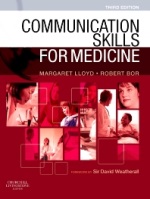Communication tips by Nursing on the Move.
Are you a professional or a pre-professional?
Do you use a second or foreign language at work?
Do you have a friend who speaks a foreign language at work or has a cultural background different from colleagues/customers?
Boost your professional interactions by trying the following tips.
A doctor cannot ignore patients’ cues: these cues are requests for help or for a response. Rather, a doctor must decide whether to act on the cue immediately or wait and respond later. Regardless of whether the issue which a cue signal can be addressed immediately, it is important to acknowledge the cue, either verbally or nonverbally.
| Examples of verbal cues: | Acknowledgement: |
| – ‘I feel worse’ | – ‘Worse than what? In what sense? About what?’ |
| – ‘It doesn’t improve’ | – ‘What doesn’t improve?’ |
| – ‘I have problems’ | – ‘Do you care to tell me about them?’ |
| – ‘It is always like that’ | – ‘Does that mean every month?’ |
Acknowledging a cue shows the patient that you have seen or heard what they are trying to communicate, and in doing so acknowledges patients’ right to have their own views and feelings, even if you disagree. This can facilitate present and future communication, as well as help build rapport.
Reflecting feelings is one way of acknowledging and responding to cues. As mentioned above, it can also help you empathise with your patient and see the situation from that patient’s perspective:
| Instead of … | Say … |
| – ‘Yes but …’ (a response which is easily perceived as a negation of the acceptance and may provoke defensiveness) |
→ ‘Yes, I understand …’ (an accepting response followed by an attentive silence inviting the patient to continue) |
You can find an overview of all communication tips by Communication for Professionals here.
 Communication Skills for Medicine, 3rd Edition
Communication Skills for Medicine, 3rd Edition
by Margaret Lloyd & Robert Bor
A highly practical account of communication for medical students, backed up with numerous case histories. In addition to the clinical interview the book covers other aspects of communication including how to promote healthy behaviour and the need for the doctor to work as part of the health care team.
by Teresa Pawlikowska, Wenjuan Zhang, Frances Griffiths, Jan van Dalen , Cees van der Vleuten
„Good communication in consultation is important to both patients and doctors and is seen as a marker of quality . Stewart et al. described patient-centeredness , as aiming at a bio-psychosocial approach, recognizing patients as experts in themselves and their experience, and involving them appropriately in consultations. Doctors should aim for this approach and use communication skills that encourage patient enablement in routine practice. However, few studies have attempted to link observed verbal and non-verbal communication within consultations to patient outcomes.“ read the article.
Tip: More up to date educational events dealing with healthcare can be found online on the Education Database »medicine & health«.


